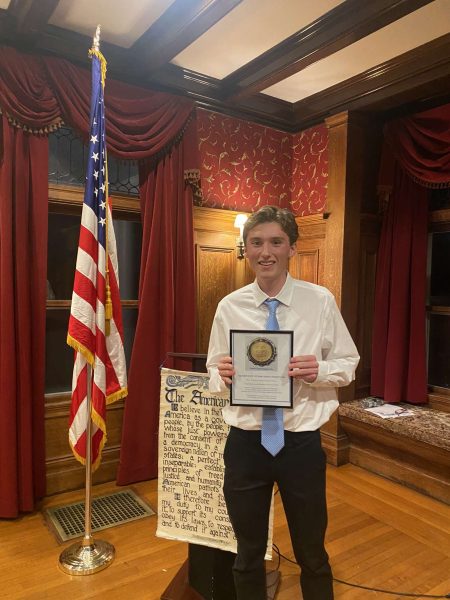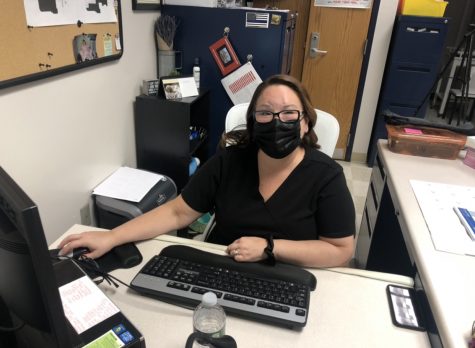Zoe Jagelski Enters Year-long German Exchange
Walpole student spends junior year abroad in Germany
After living in Walpole her entire life, junior Zoe Jagelski decided she wanted to experience a new perspective by entering a foreign exchange program. Despite the extensive application process, Jagelski was selected to join a group of teens from across the nation in a full year abroad in Germany. This August, Jagelski took off for her new home in Gießen, Germany.
The first shock was the environment of her new city. Gießen, with a population nearly four times that of Walpole, was much larger than she expected. Considering the size, Jagelski was surprised by the lack of cars used and the amount of biking or walking done instead.
“In general, people care more about the environment here,” Jagelski said. “For example, my host family has four different recycling bins and we only use the car around three times a week because we bike a lot here and the buses and trains are way better than in the US.”
The most difficult part of her transition, however, was the new language. Never having learned German before being fully immersed in the language made all aspects of life in a new country even more difficult, but Jagelski credits her host family for making the adjustment to her new life as easy as possible.
“I’m really lucky to have an amazing host family and especially a host sister my age who has made my experience of adjusting in school and in general a lot easier,” Jagelski said.
While learning German has been very hard and Jagelski intends to start taking a German class to improve her grammar, she has been able to adjust in her first few months largely because of the amount of Germans who can speak English.
“Almost everyone speaks great or at least passable English, so if I’m confused or need help, I can always fall back on English,” Jagelski said. “However, this is also a disadvantage because it doesn’t force me to always be speaking German so I don’t learn as quickly.”
In school, Jagelski misses the large variety of extracurriculars available at WHS, but otherwise enjoys her new schedule. Students at her school do not adhere to the strict full-day rotating schedule that is used at WHS, but rather go to school when they have classes, which can vary in number and length each day. Jagelski really enjoys all of her classes despite the added difficulty of learning the language most classes are being taught in.
“Right now I can understand different amounts of what’s going on in each class,” Jagelski said. “For example, in French and math I can understand most, but Chemistry is much harder.”
Overall, Jagelski finds that school in Germany is less stressful than it is in the US, though she admits that she is lucky to avoid preparing for the Abitur exam, which is a test taken in the last year of high school that can be used to apply to university and causes a lot of stress for many of her peers. Jagelski also credits her stress-free transition to German life to the welcoming people there.
“Although there is a stereotype that Germans are cold, I wasn’t really surprised to find this wasn’t true as almost everyone I’ve met here has been very kind and welcoming of me,” Jagelski said.

Maggie Mahoney, class of 2022, is the Assistant Sports Editor for The Searchlight. At Walpole High School she plays varsity lacrosse, captains the...













